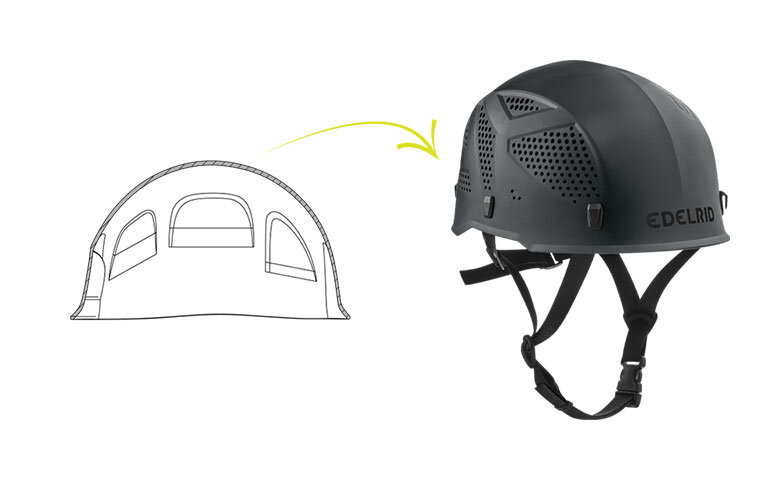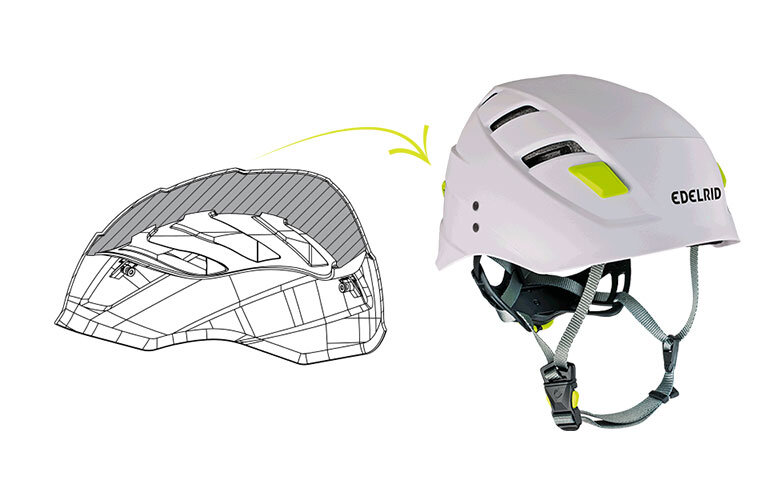Different types of helmets are used in mountain sports and in work safety. They differ in their construction and function and are therefore suitable for different applications. The construction can be roughly divided into three types: so-called hard shell helmets, in-mold helmets and hybrid helmets.
The requirements and test procedures for mountaineering helmets are laid down and described in the EN 12492 standard.
HARD SHELL HELMETS
These helmets have an extremely robust and shockproof shell made of plastic, which extends over the entire outer helmet surface. In the past, shells made of glass-fibre reinforced plastic were mainly used, whereas nowadays mixtures of polypropylene and acrylonitrile-butadiene-styrene (ABS) are mostly used. An internal strap construction increases the damping properties and ensures that the helmet does not sit directly on the head. Impact energy is absorbed by the elongation of the straps and the elastic deformation of the shell.
Thanks to its extremely stable construction and the mostly antibacterial straps, which can be easily removed and cleaned, this helmet form is particularly suitable for commercial facilities such as climbing centres and adventure parks.


